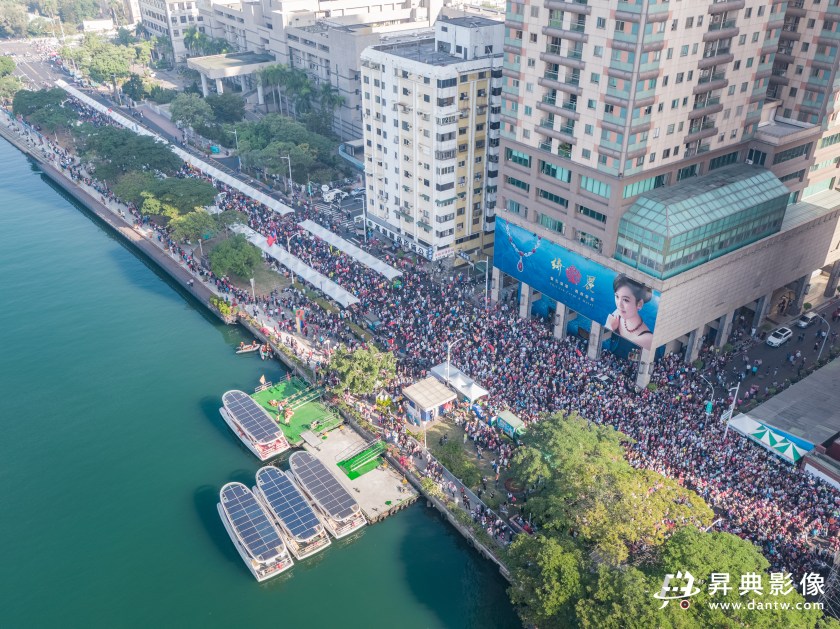Written by Mei-chuan Wei.
Image credit: 高雄市長韓國瑜就職典禮 by 昇典影像 www.dantw.com /Flickr, license CC BY -NC-ND 2.0
It seems that support for the once unstoppable ‘Han Wave (hanliu)’, which swept Han Kuo-yu to victory as Mayor of Kaohsiung in Taiwan’s 2018 local elections, is ebbing. Han’s victory was unexpected and a huge blow to the ruling Democratic Progressive Party (DPP). Almost all the polls indicate that Kuomintang’s (KMT) Han, who was once the most popular and non-conventional politician in Taiwan’s recent political history, is struggling to catch up with his opponent the in presidential elections, the DPP’s Tsai Ing-wen. What has brought about this turn of fortunes where the KMT is predicted to lose and the DPP win?
Since Han Kuo-yu’s victory last November and the advent of the ‘Han Wave’ in the former DPP stronghold of Kaohsiung, commentators have attributed many factors to KMT success: populism, local client patronage, the China factor, the exacerbation of existing socio-economic inequity, and the speculated corruption of the ruling DPP. Han’s campaign strategies were ‘unconventional’, especially given his position as the KMT candidate. For example, his rhetoric intentionally appeals to ‘common folks’ (shumin), the majority of whom are working class people and have been the main social base of the DPP’s political support. Han’s anti-elitist position was also considered unusual, for although the DPP is generally seen as increasingly elitist, the KMT has always been perceived to be the elitist party.
Local client patronage and China’s influence are also crucial for explaining Han’s victory. Local client patronage might have independently contributed to the victories of Han and the KMT. Yet it is also speculated that resources provided by Beijing as part of its ‘United Front’ political warfare are crucial for the continuous influence and even survival of local political factions in Taiwan. Han’s popularity, his victory in the mayoral election, and his pro-China position have led Beijing to believe that he has a real chance to beat the DPP and will work with Beijing if elected president. These factors explain Beijing’s support for Han in the form of Taiwanese collaborators in local political factions and the pro-China media.
Why are commentators declaring that the Han Wave is ebbing? Most analyses point to the anti-extradition act protests in Hong Kong as evidence of the failure of ‘One Country, Two Systems’ formula that Xi Jinping claimed in January would be used to unite the Taiwan and mainland China. The CCP’s handling of Hong Kong and the Hong Kong administration’s response to the misconduct of police has discredited not only the idea of One Country Two Systems, but also pro-China unificationist Han and KMT. The DPP and pro-independence pan-green camp’s decisions to focus their campaign strategies on national security is further evidence of China factor in politics. Placing the pro-China retired Major General Wu Sz-huai, who had actively participated in events organised by Chinese authorities in the mainland, on the KMT’s party list for the reserved 34 proportionally-elected seats has resulted in a further decline of support for the KMT. Public testimony by Wang Liqiang, an alleged Chinese spy who has reportedly given information about China’s interference operations in Taiwan, Hong Kong and Australia, further negatively affected support for Han in Taiwan.
Media coverage of Han’s campaign demonstrated to some his inability to comment on important policy issues and his frivolous language, raising doubts of his capability as leader of the country. Reported allegations of his previous misconducts also had a similar effect. After all, most people see the requirements and qualifications of a national leader to be different from those of a city mayor. Deciding to run for president less than a year after he assumed the position of Kaohsiung Mayor not only earned him the name of ‘running away mayor’, but also sacrificed his chance to demonstrate his governing capabilities. Han’s performance at the first televised electoral debate deepened impressions that he is either not ready or simply not qualified to be president.
Tsai Ing-wen’s chances of winning re-election seem secured, although a narrow margin is expected. It has been alleged that Beijing is prepared for Tsai’s victory and has shifted its focus to the legislative elections, aiming to prevent the DPP and its allies from win the majority in the Legislative Yuan. National identity politics embodied in the pro-China/unification versus pro-Taiwan/independence positions have always been at the centre of Taiwan’s presidential elections. Yet people’s discontent with Tsai’s administration and the DPP is genuine. Whilst it is important for the DPP to appeal to the ‘fear of losing the country,’ it would not be in the interest of Taiwan’s development and the livelihood of its people if all other equally important policy issues, such as the pressing problem of deteriorating social redistribution, are thus sidelined or marginalised.
Mei-chuan Wei is Associate Professor & Chair, Graduate Institute of Development Studies at National Chengchi University, Taipei Taiwan. She received a Ph. D. in Government Department from London School of Economics, UK.

